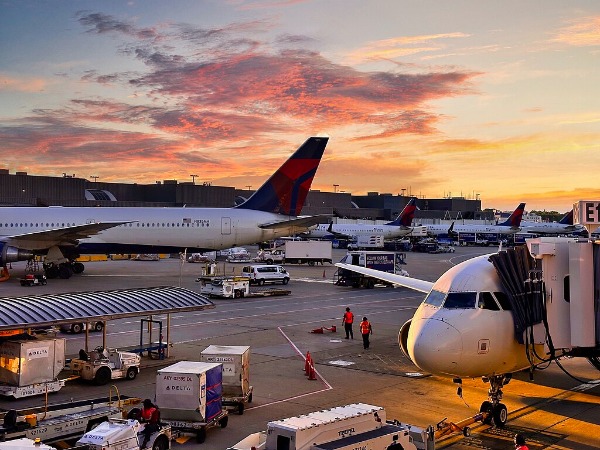A 70-year-old Egyptian traveler was swiftly deported after kicking a U.S. Customs and Border Protection (CBP) detector dog at Washington Dulles International Airport on Tuesday, June 24, 2025. The incident occurred when the dog alerted its handler to prohibited agricultural products in the traveler’s luggage.
Hamed Ramadan Bayoumy Aly Marie had just arrived on a flight from Cairo when Freddie, a five-year-old beagle weighing 25 pounds, detected something suspicious in his luggage. When the CBP handler began questioning Marie about the contents of his suitcase, Marie kicked Freddie with enough force to lift the dog off the ground.
CBP officers immediately responded, handcuffing Marie and turning him over to Homeland Security Investigations agents. The following day, Marie pleaded guilty in the U.S. District Court, Eastern District of Virginia to harming animals used in law enforcement, a violation of federal statute 18 U.S.C. § 1368.
Marie’s punishment was swift. He was credited with time served, ordered to pay $840 in veterinary fees, and required to immediately report to CBP for removal from the United States. By Thursday afternoon, he was on a flight back to Egypt.
A veterinarian determined that Freddie suffered contusions to his right forward rib area but is expected to make a full recovery. CBP later shared an update on social media showing Freddie enjoying a “Pup Cup” treat during his recovery.
“Being caught deliberately smuggling well over one hundred pounds of undeclared and prohibited agriculture products does not give one permission to violently assault a defenseless Customs and Border Protection beagle,” said Christine Waugh, CBP’s Area Port Director for Washington, D.C. “We rely heavily on our K9 partners and Freddie was just doing his job. Any malicious attack on one of us is an attack on all of us.”
When CBP officers searched Marie’s luggage based on Freddie’s alert, they discovered a significant amount of prohibited agricultural products: 55 pounds of beef, 44 pounds of rice, 15 pounds of vegetables (including eggplant, cucumbers, and bell peppers), two pounds of corn seeds, and one pound of herbs. All items were seized as they’re prohibited from entering the United States.
Similar Posts:
These types of agricultural products pose serious biosecurity risks. Raw meat can carry foreign animal diseases like Foot-and-Mouth Disease or African Swine Fever, which could devastate American livestock industries if introduced. Plant products, especially seeds, may harbor invasive pests or pathogens that could damage U.S. crops and ecosystems, potentially costing billions in eradication efforts and lost revenue.
Freddie is part of CBP’s “Beagle Brigade,” a specialized unit that plays a vital role in protecting U.S. agriculture. The program began in 1984 at Los Angeles International Airport with just one beagle and has since expanded to over 180 canine teams nationwide. Beagles are the preferred breed for passenger screening because of their keen sense of smell, non-threatening size, high food drive, and gentle disposition with the public.
The Beagle Brigade has proven remarkably effective. In a typical day, CBP agriculture specialists and canine teams across the nation seize approximately 3,600 prohibited plant, meat, and animal byproducts, and intercept nearly 250 insect pests at U.S. ports of entry.
The incident drew attention from animal welfare advocates. People for the Ethical Treatment of Animals (PETA) announced they were sending Freddie an orthopedic bed and handmade treats to aid in his recovery. In their statement, PETA President Ingrid Newkirk wished Freddie a speedy recovery while also encouraging law enforcement agencies to “phase out the use of K-9s and shift toward modern policing technology.”
Most detector dogs in the program, including Freddie, are rescued from animal shelters or obtained through private donations. They undergo rigorous 10-13 week training at the National Detector Dog Training Center near Atlanta, Georgia before being deployed to ports of entry around the country.

Freddie’s story has garnered significant public attention and support. Before this incident, Freddie was already something of a social media star, with CBP regularly sharing videos of him in action on their official accounts. According to The Washington Post, Freddie was found on a median in Georgia before joining the federal service, where he learned to detect various prohibited meats including cane rat, pigeon, snake, and camel.
For international travelers, this incident serves as a stark reminder of the importance of declaring all food and agricultural items when entering the United States, and the serious consequences that can result from non-compliance with these regulations.


















